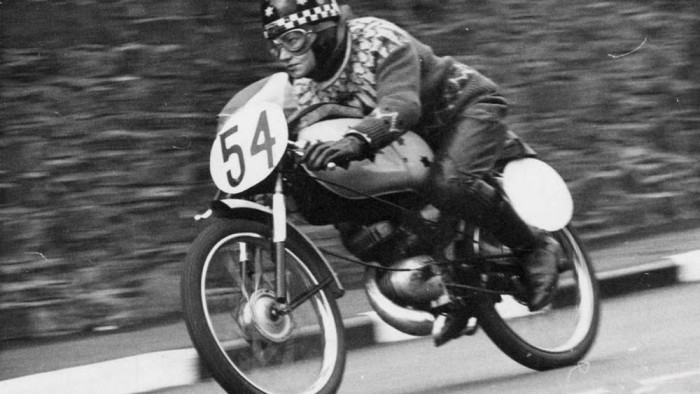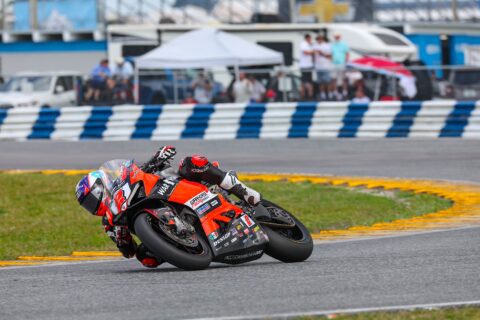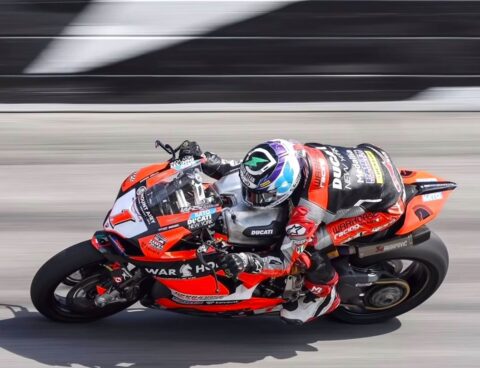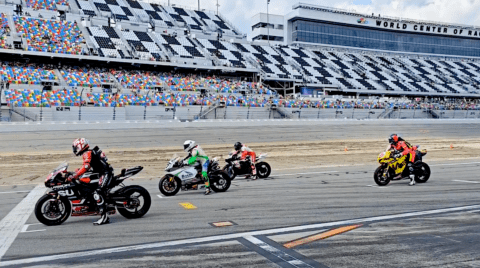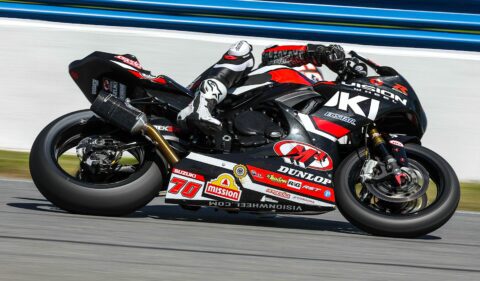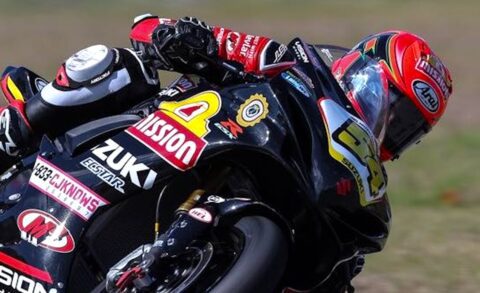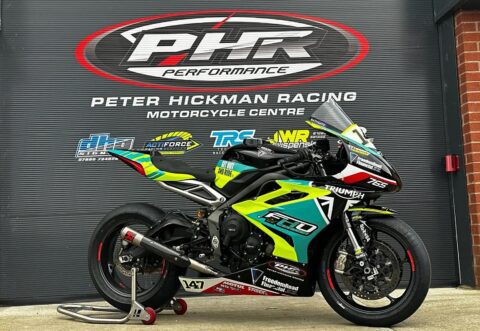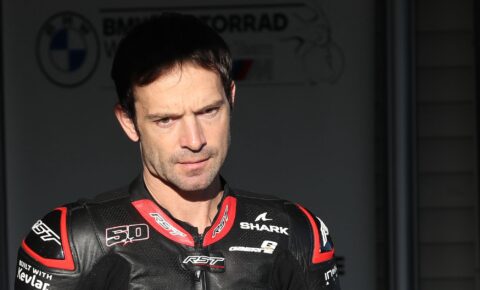Who’d have thought that women’s football, rugby or even boxing would have exploded in such numbers or achieved such national recognition as it has in the last three or four years? OK, we’ve all known about tennis players, athletes or swimmers. But contact sports like rugby?
Four of the 12 finalists in the BBC Sports Personality of the Year awards were women, and one a Scouser who would quite easily kick your head off. But there still appears to be an inequality in sports where engines are involved as engines mean speed and speed equals danger. Or, like golf, where in some clubs, controlled by white middle-aged men, women aren’t allowed.
But even they, faced with falling participant numbers, are having to recognise that there is a huge untapped market out there and the governing bodies are being forced to do something about it.
While not being entirely in the same boat, is our governing body, the Auto Cycle Union (ACU), doing enough? Enough for road or track racing that is? Before going on, it has to be said - and applauded - that Emma Bristow and Rebecca Cook have won seven women’s FIM World or European Trial Championships, Bristow world champion for the last four years, with Donna Fox bagging a third. But, it has also to be said, perhaps cruelly, that who outside off-road sport, has heard of them?
Fifty-five years ago a woman, Mrs Beryl Swain, took part in a world championship motorcycle race. It was the 1962 Ultra-Lightweight TT for 50cc machines, and riding an Itom, she finished 22nd in a two-lap race.
It was the first year in which the 50cc class had been granted world championship status and her appearance attracted huge publicity. But it was to be her first and last TT.
The ruling body, presumably the FIM, to whom it had never occurred that a woman might be taking part, were caught out but quickly concluded that it was much too dangerous for the gentle sex and that a fatality would be bad publicity.
Her international license was revoked.
The fact that 250 odd blokes had already been killed there was, apparently, neither here nor there. Beryl packed up in disgust and at the age of 26 her career ended. The ban stayed until 1978.
She pursued an alternative career as a manager with Sainsbury’s but when she died, aged 71 in 2007, she had certainly not been forgotten, warranting an obituary in The Times.
It had been a relatively short career but with some success pre-TT at circuits like Brands Hatch and Snetterton, she attracted a lot of media attention. Pathe News gave it great coverage and the footage still appears on YouTube. The commentator warned racing males to look out as women were coming and their domination was about to end.
So, half a century later, what has happened? Not a lot it has to be said and despite the efforts of Carolyn Sells who, if by chance you don’t know, became won the 2009 UltraLightweight Manx GP; plus the successes of Hilary Musson and more latterly Jenny Tinmouth and Maria Costello, the impact of women has been marginal.
But a 20 year old from Spain may be about to change all that. Ana Carrasco made history at Portimao in Portugal by becoming the first woman to win an FIM World Championship race, the World Supersport 300. She took her Kawasaki to victory in a blanket finish with less than a second covered the leading five. And at Jerez she was again up with the leaders but was penalised for a jump start.
Is there hope? A German rider, Lucy Glockner, is among the men, finishing in the podium at the Bol d’Or and a contender in the IDM Superbike Championship but unlike other male-dominated sports such as rugby, football and cricket, motorsport has made zero progress. Perhaps because there are no gender specific classes?
More likely, rather like golf where men and women rarely play together even though they can, there is a cultural divide where women are just not respected, or even tolerated. Player numbers are declining and the governing bodies are desperately trying to attract women. Is it time that the motor cycle industry, where bike sales are falling, or the ACU, our governing body, took a similar stance and did something to attract the other half of the population?
That is certainly the view of British Dealer News columnist Roger Willis who accuses both trade and industry for paying lip service to equality and diversity and indulging in shallow, box-ticking tokenism. He also blames the media for not taking women riders seriously.
But what is the solution? Maria Costello says simply: “We all have to work harder.” Not many work harder or, with a couple of TT Classic podiums and an MBE behind her, have been more successful. So who does she mean? After 21 years of pushing against the glass ceiling she is clear as to what should be done and would not argue with Willis’ conclusions.
But she remains optimistic and believes we maybe approaching a tipping point. “What Ana achieved is wonderful and having Lucy on the podium at Paul Ricard says something. Of course, Spain has always been a great country for promoting grass roots, including girls. It still remains a difficulty getting it taken seriously here,” she reflects ruefully. “Parents find it more acceptable for boys and therefore our pool is very small.”
But after speaking at a recent Sport Northern Ireland event, she found a lot of interest and believes that, given more hard work, progress could be made and role models of successful girl riders will encourage others.
Should there be separate classes based on gender? “Absolutely not,” she says. “People are amazed when they realise I can successfully compete against men. Size and strength doesn’t come into it. Look at Dani Pedrosa.”
But the fact is that perhaps unlike off-road such as trials, MX, where there are championships which, outside the UK, attract a lot of attention road/track racing is run by white middle-aged men. And until that changes it is going to be hard work for women.
Perhaps Maria, we should accept women-only racing. Perhaps with a bit of rivalry being built up between say, Jenny and Maria, it would attract a lot more attention than what is being achieved now. Which race promoter is going to give it a go?
Last word from Maria perhaps sums it up: “Beryl Swain wasn’t banned just because of danger. The men just didn’t like it.”

